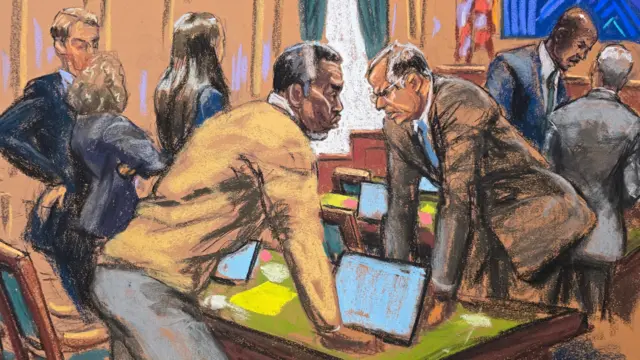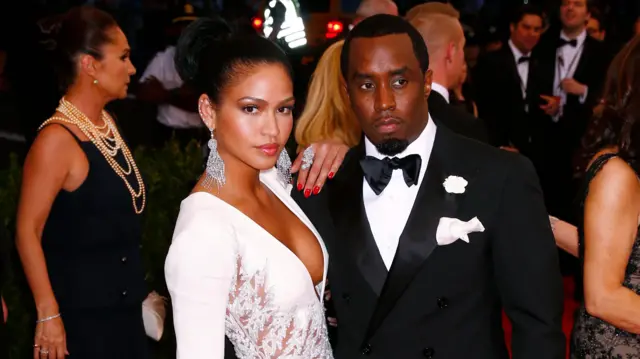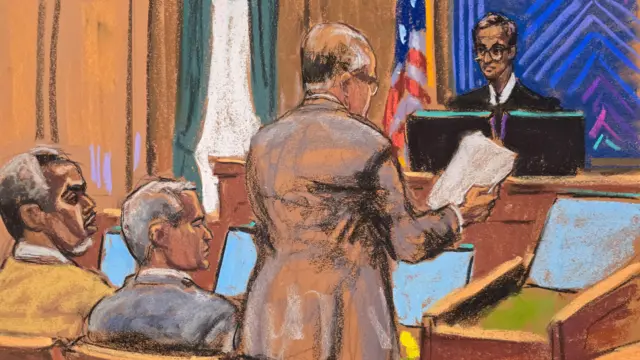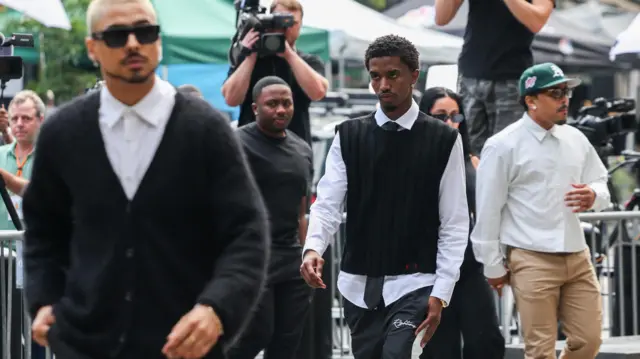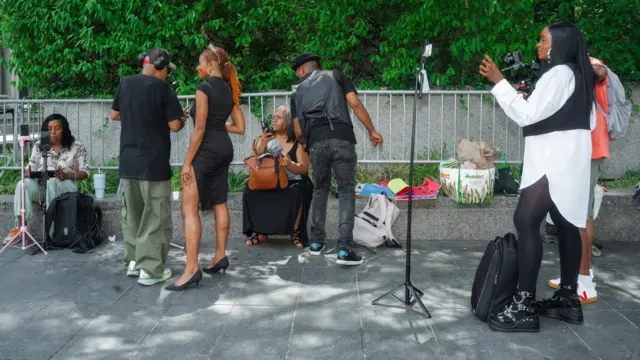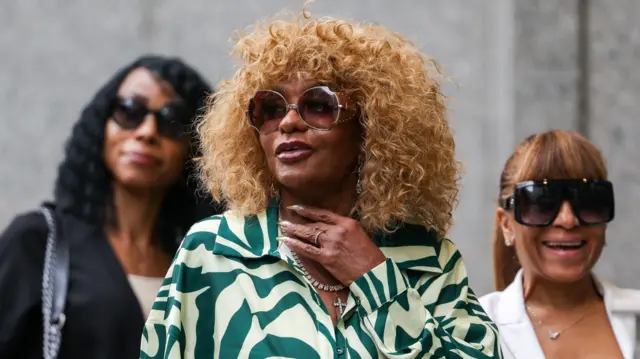Jury unable to reach a verdict on one countpublished at 21:44 BST 1 JulyBreaking
 Sakshi Venkatraman
Sakshi Venkatraman
Reporting from court
The jury has reached a partial verdict.
In a note sent to the judge at 16:15 EST (21:15 BST), the jury’s foreperson says the group has reached verdicts on counts two, three, four and five - which are the sex trafficking and transportation for prostitution charges.
They say they are unable to reach a verdict on count one - racketeering conspiracy - because jurors on both sides have opinions that are unmovable.


